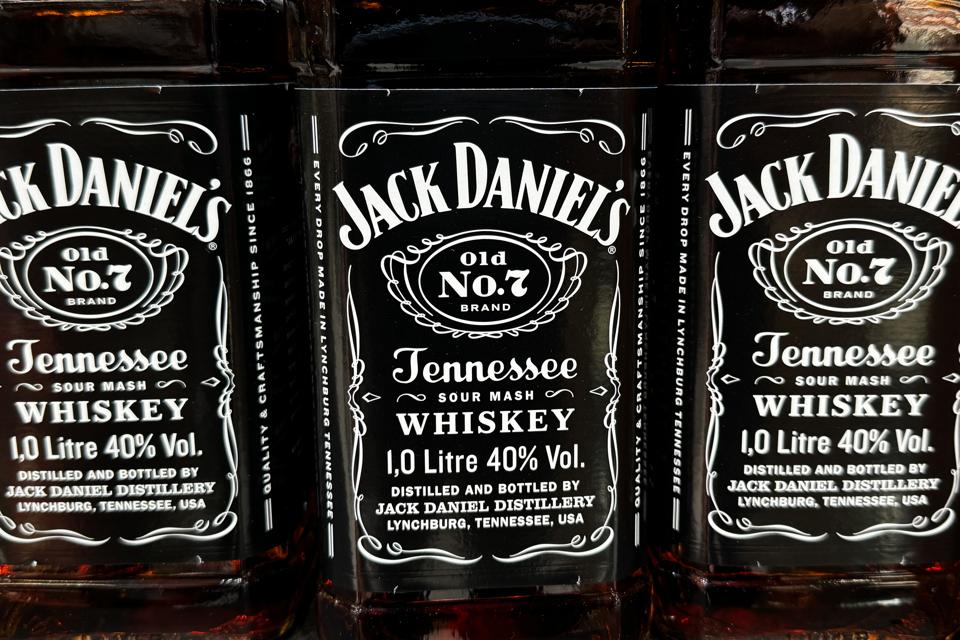President Donald Trump’s trade war got so heated that Canadian retailers removed American liquor from their shelves as the two countries traded barbs. Diageo and Pernod Ricard are among the multinational liquor giants that have warned investors about issues related to geopolitical uncertainty and a dour economic climate.
But alcohol beverage investor Brian Rosen has taken a contrarian view. He argues that for a vast majority of small, American-made whiskey and bourbon brands, tariffs may actually be helpful.
“When you look on the effect on Kentucky whiskey, it’s almost to the positive, in that the tariffs will make foreign whiskies—Japanese, Irish, Scotch, and Canadian—appear more expensive on the shelf, while American whiskey can remain at the same shelf price,” Rosen, the founder and general partner at InvestBev, tells me during a virtual interview.
Even with a vast portfolio of liquors made in the U.S., Caribbean, Mexico, and other foreign markets, InvestBev says it is well positioned. From the moment Trump won the presidential election in 2024 through his inauguration in January, InvestBev boosted exports to various markets globally, allowing it to avoid paying any of the current tariffs.
“We prepared for it, we planned ahead for it, and we find ourselves sitting in a pretty good position right now,” says Rosen.
A Glass Half-Full Outlook on Tariffs
Small businesses across America, even the whiskey makers that solely produce and sell in the U.S., are expected to be gravely impacted by disruptions to supply chains. Tariffs will push up the cost of any goods that they import from foreign markets like China that are used for manufacturing, bottling and shipping at their U.S.-based distilleries. Small businesses are so concerned that they have been pushing for exemptions from Trump’s tariffs, saying they have less wiggle room to ingest higher costs than larger rivals.
Multinational industy giants like Pernod Ricard and Diageo have been sounding the alarm on the negative impact on tariffs for months. Diageo, which pulled the company’s medium-term guidance over the uncertainty around tariffs, warned the Trump administration that thousands of American jobs were at risk, especially if levies were placed on goods from Canada and Mexico. French liquor giant Pernod Ricard lowered its guidance for the fiscal year, also citing the trade tariffs, including a spat between China and the European Union.
The trade organization the Distilled Spirits Council of the United States last week disclosed that U.S. spirits exports leapt an astonishing 39% to the European Union in 2024 from the prior year, as consumers rushed to buy American-made products due to concerns about a looming trade war.
“Unfortunately, ongoing trade disputes unrelated to our sector have caused uncertainty, keeping many U.S. distillers on the sidelines and curtailing sales growth,” said DISCUS President and CEO Chris Swonger in a statement.
Jack Daniel’s producer Brown-Forman has said that Canadians pulling American alcohol brands from the shelves are even worse than the tariffs, as the Trump administration’s trade war is showing some signs of an increasingly dour brand perception for all American companies.
InvestBev, meanwhile, comes to the alcohol beverage business from a different angle. Founded in 2015, the Chicago-based private equity firm only invests in beverages intended for adult consumers, with a portfolio of investments across 61 different companies including Ten To One rum, JuneShine ready-to-drink canned cocktails, Siempre tequila and e-commerce retailer ReserveBar.
But InvestBev also owns over $100 million in raw distillate, the liquid that’s produced through distillation and will eventually become whiskey or bourbon. Rosen says that only 6% to 10% of Kentucky bourbon is exported abroad each year, meaning most small distilleries won’t be impacted directly by tariffs.
The largest brands—Jack Daniel’s, Jim Beam and Maker’s Mark among them—will see their margins hit by tariffs, Rosen says, because of their international reach.
“The brands we represent, they don’t sell duty-free in Belgium,” says Rosen. “They’re struggling to make it on the shelf here in the U.S. So, there’s a different fight.”

